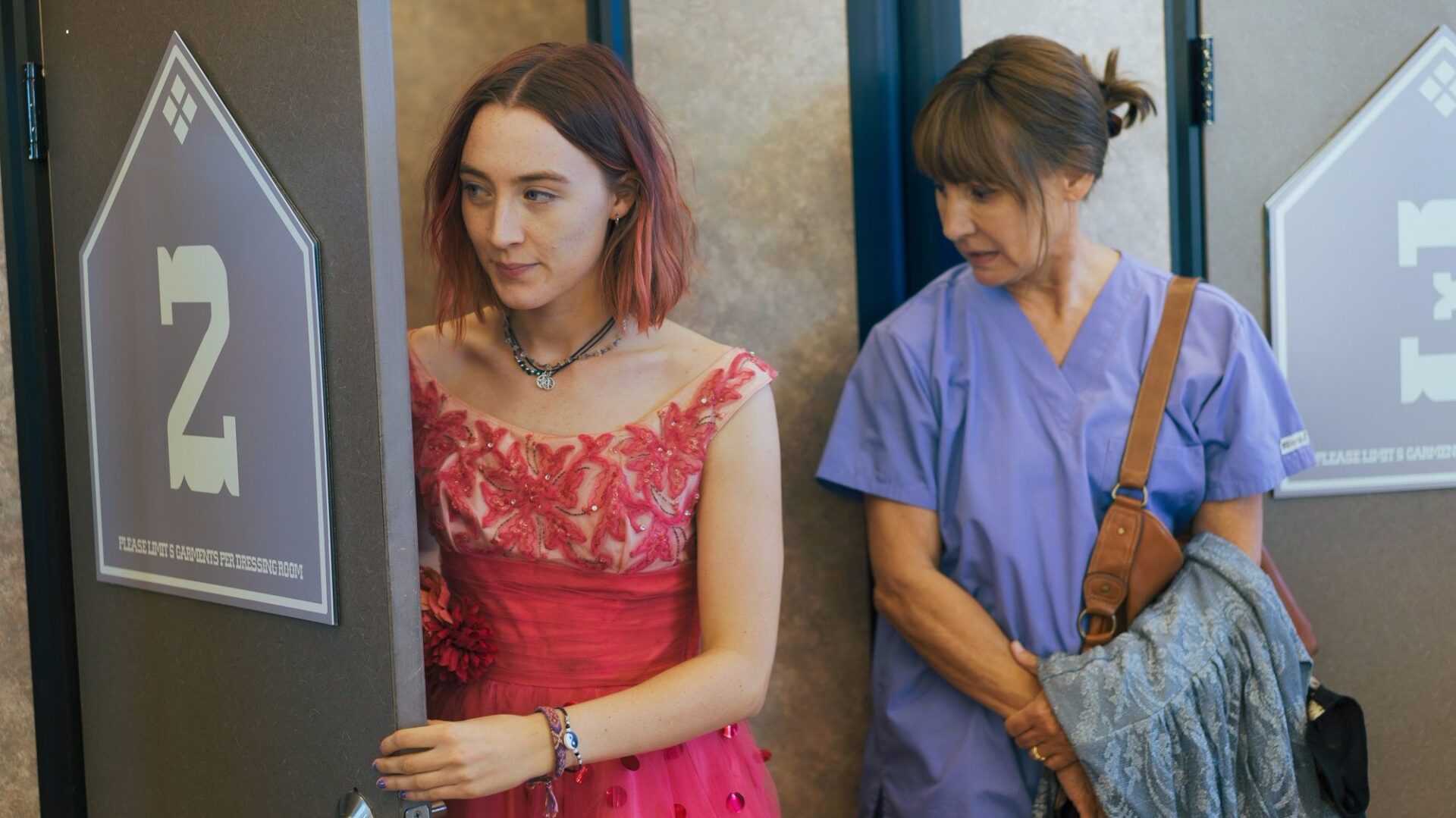If you’ve been paying attention to the talk coming out of recent festivals, then you’ve probably already heard about Lady Bird. It’s Greta Gerwig’s directorial debut, and while it’s just as great as you’ve heard, it may be even better than the hype. So many coming-of-age films seem to rely on crass humor to craft their main character, sometimes centering around a precocious teen lashing out at her parents and peers in emotional fervor. Gerwig fully understands that trope and completely subverts it, showcasing Saoirse Ronan’s Christine “Lady Bird” Macpherson as an ever-changing young girl, the kind that changes with every social situation, constantly seeking for what will define her in a world geared to over-inundate.
But that and her sharp-tongued wit aren’t fatal flaws; they’re her strengths. Gerwig, like few filmmakers, keeps her mind open to her characters. Everyone has their reasons for being who they are, and she simply asks that we accept that. Who gives a shit if that sounds hokey? Lady Bird celebrates the unique individual in all of us, whether that person be buried under the day’s tedium or dancing in the streets. Inflection doesn’t have to be inward.
Lady Bird has a strained relationship with her mother, Marion (Laurie Metcalf), to say the least. The predominantly strict Christian home and school life doesn’t do much for her. She has big dreams of New York, but no vision of who she wants to be or any idea what she’s really good at. Her father (Tracey Letts), though supportive, has little means to make her dreams come true. Marion tries to be a bit more rational with Lady Bird’s expectations, even though that doesn’t do much to stifle her headstrong ways. Lady Bird’s journey is less about stumbling through experiences and more about trying to find footing in a world where everyone is putting up a front, to an extent.
Laurie Metcalf and Saoirse Ronan have, to no surprise, given two of the best lead performances of 2017. Their performances aren’t based in awards-seeking gusto, though. While some of the scenes rely on the two to verbally jab with each other in ways that result in revealing the characters’ true feelings, it never feels staged. Credit goes to Gerwig for that, too.
Gerwig’s first feature is remarkably confident and assured, too. From the first frame to the last, you can clearly tell that the person behind the camera is humbly asking you to follow this story and reflect on how it may relate to your life as you’re watching it. The ending almost directly asks you to do something, which may sound a bit presumptuous if coming from other filmmakers. Here though, it comes off as sincere and careful, like much of the film. Gerwig doesn’t posit these characters with base, but deep, emotions for no reason. She wants to get a macro view of humankind on a micro scale, and for the most part she does just that.
What struck me as being unique about Lady Bird wasn’t so much as the amount of humor it had in it, but about how well it sustained that humor for what seemed like the entire runtime. Even when the jokes stop to deliver some emotional blow, it all still comes out humorous, as if Gerwig believes that there’s no reason why the drama and humor she’s written can’t coexist, that these two sides of the spectrum can be overlaid and still work.
While you may think by the premise and trailers that Lady Bird relies on its quirks to entertain, you’d be terribly wrong. This is the kind of film that very naturally tells a story that may seem easily digestible on first look but litters the world it creates with grace notes. Whether it be the priest who can easily cry on cue or the loner rock crush that seems to brood for attention, Lady Bird wants to and succeeds in constantly subverting whatever read you may have on it. Between this and Princess Cyd, indie productions involving people finding their way through life are eager to do much, much more than retread.













